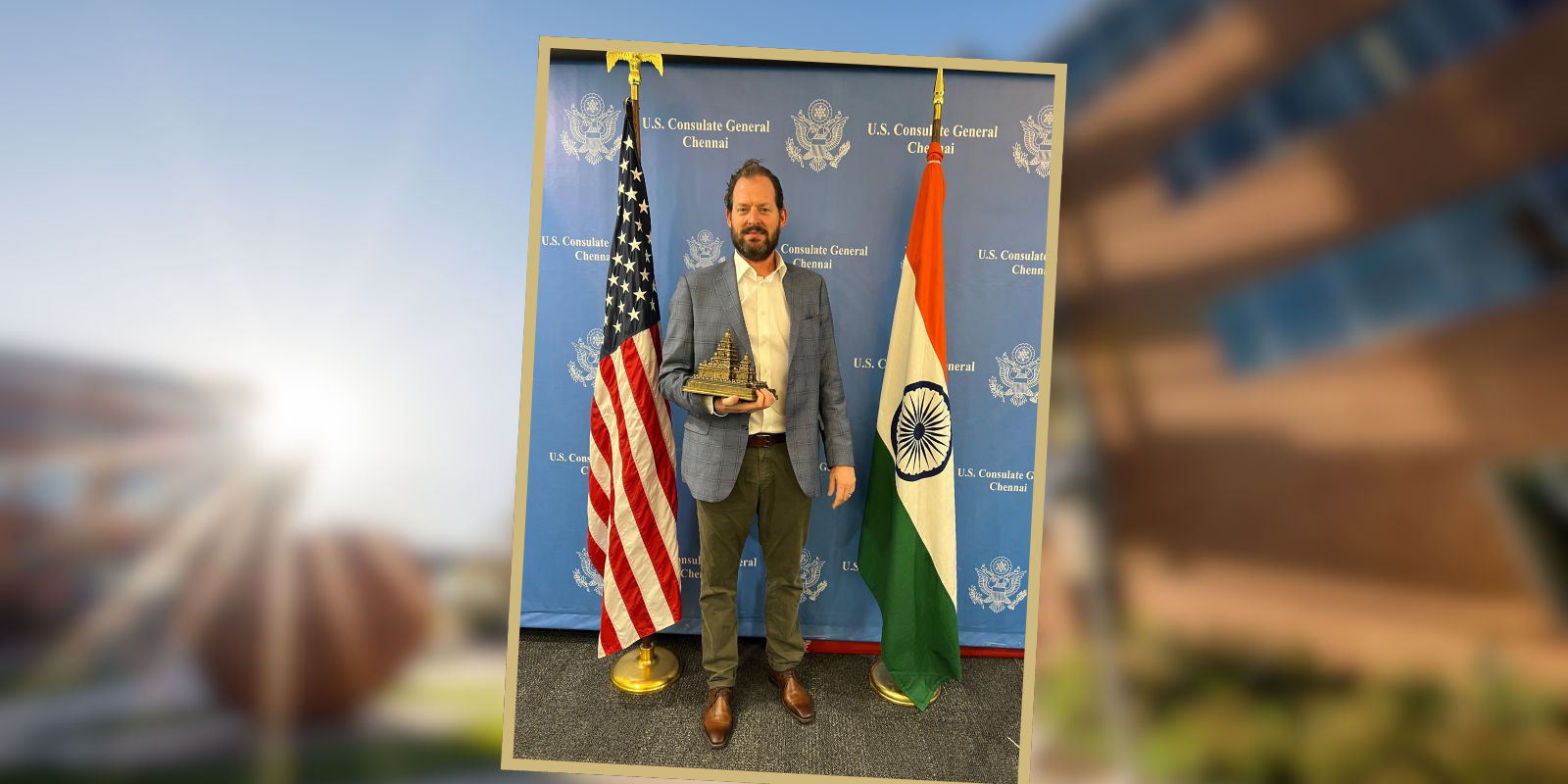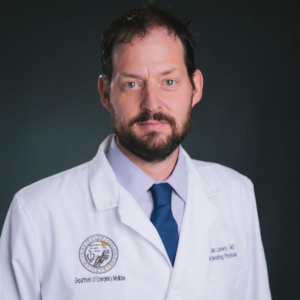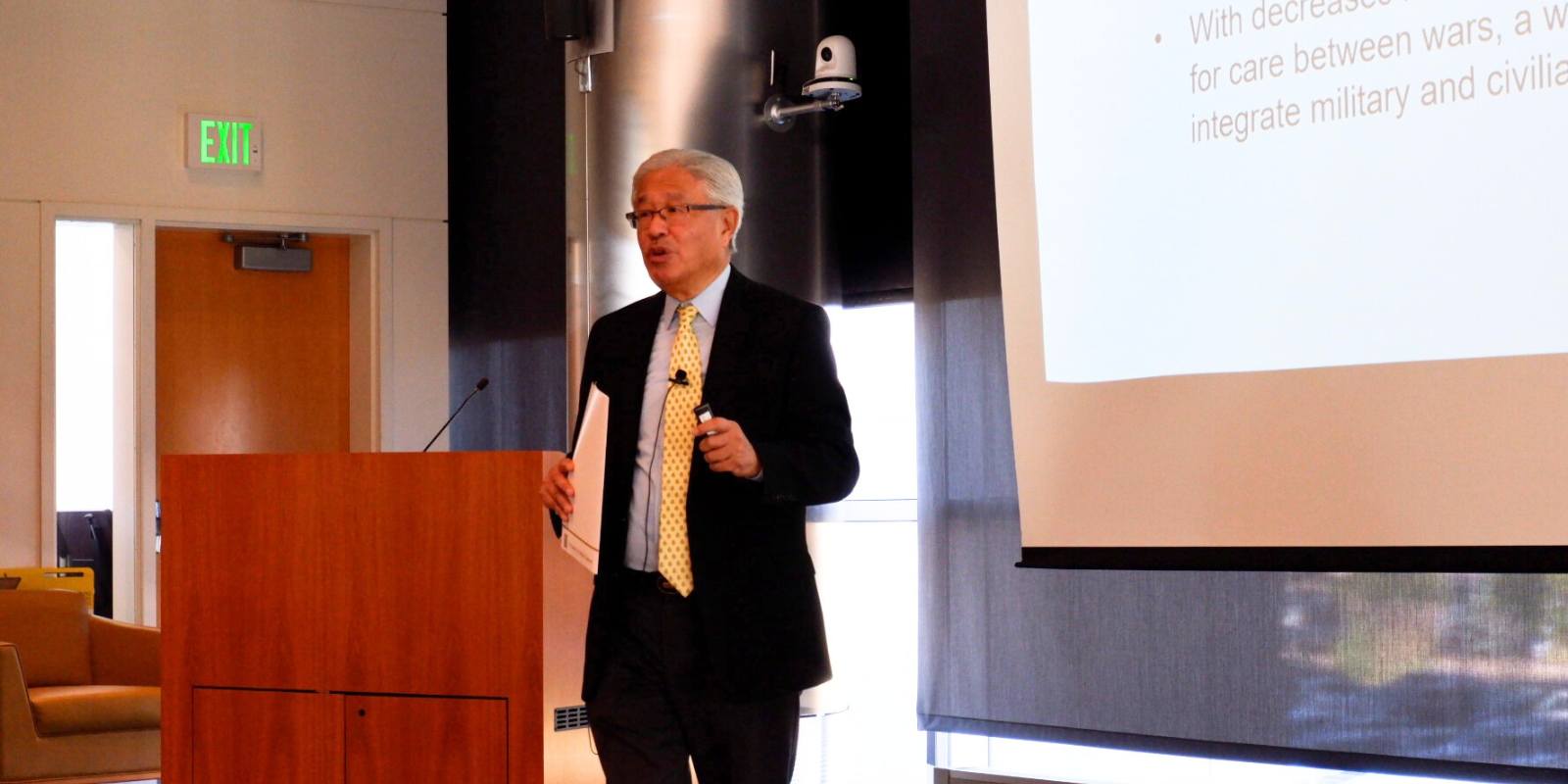Even with more than 8,000 miles between the University of Colorado Anschutz Medical Campus and India, health scientists are finding ways to learn from each other and further their work amid global challenges and climate change.
In late January, Jay Lemery, MD, professor of emergency medicine and co-director of the Climate and Health Program, boarded a flight bound for Delhi where he began a two-week tour of India as part of the U.S. Department of State’s U.S. Speaker Program.
The program invites hundreds of American experts on various key policy priorities to other countries each year for talks, workshops, and consultations. Lemery’s visit covered the breadth of his work, including climate health, wilderness medicine, and how scientists are thinking about the future of health and space.
“These kinds of trips are truly about human connection,” says Lemery. “It’s cultural diplomacy, and in my case, it’s science diplomacy. We shared our work and asked each other questions. During my trip, I met with peers, students, engineers, physicians, and public health professionals.”
Preparing for an uncertain future
The trip included stops in the city of Chennai and the Jaipur Literature Festival, where Lemery participated in a panel discussion about the dilemma of climate change and disease.
In Chennai, the U.S. Consulate General and Press Institute of India organized a discussion that highlighted the intersection of health and climate change, especially increasing challenges with unpredictable weather and heat waves, shifting disease patterns, and food inequality.
"The impact is physiological, affecting the young and the old, and sociological, affecting people without access to air conditioners or fans in places where there are power outages,” he said during the talk.
This means the need for a more tailored education for health care professionals is growing.
Lemery talked about the “climate doctors” he and colleagues are training in the CU School of Medicine through the Diploma in Climate Medicine, which prepares health care professionals for a career that is increasingly affected by climate change and teaches them how to lead in climate and health policy, environmental justice, health system decarbonization, workforce training, and research dissemination.
“You’ve got climate change, and you have its effects on health. Where does the clinical community fit into that? What should they know? That’s the space we’re in,” he says. “We're trying to define that and then amplify the capacity and the proficiency of our providers, to be able to address and understand those risks, and to be better care providers for our patients and their communities.”
Strength in sharing
Lemery says that everybody should have the chance to learn, share, and teach aboard.
“There's a lot of world out there, and there are a lot of really interesting colleagues, and all too often, the demands of our work forces us to silo ourselves. We have to sometimes, but at some point, we've got to pull our heads up and understand the impact of the science that we're doing,” Lemery says.
The opportunity through the U.S. State Department is part of that.
“We’re all trying to understand different perspectives, different approaches, and make connections with people. Whether they're peer researchers, peer physicians, students or even other community members, it’s important to engage. It really allows us to think about the work we’re doing in ways that we wouldn’t normally have.”


